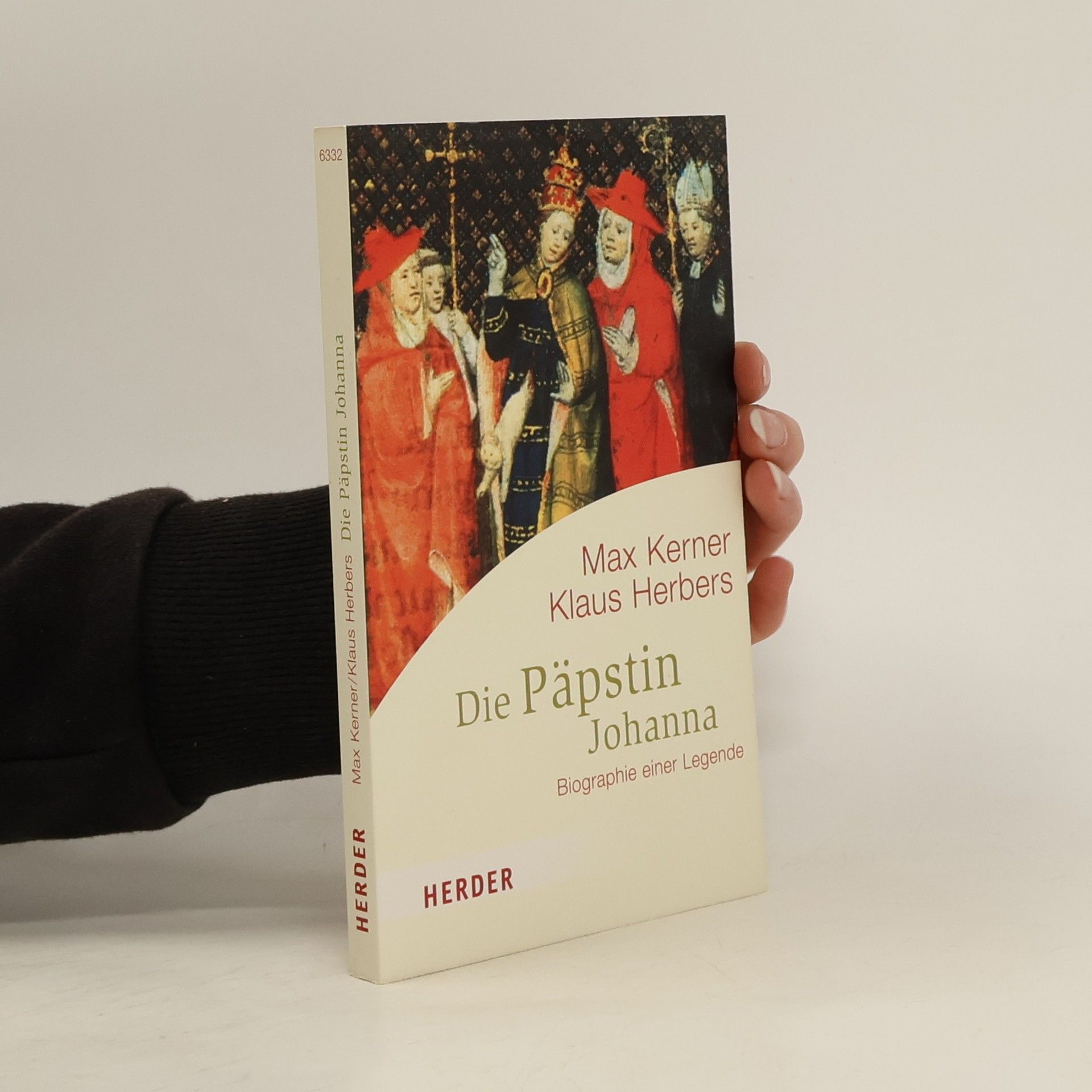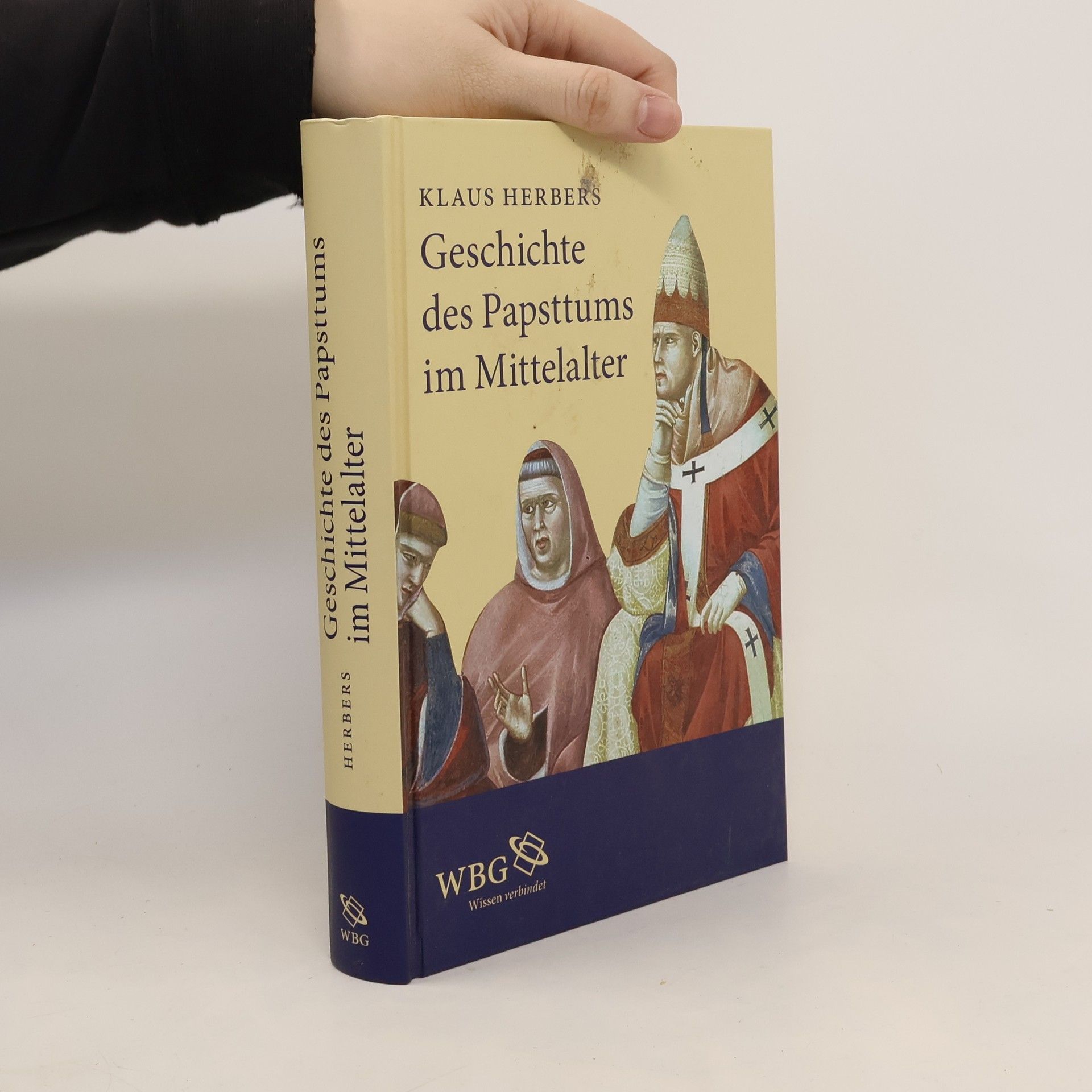Klaus Herbers Book order (chronological)






Aufbruch in eine neue Epoche
Vergangenheit und Zukunft im Bericht des Nürnberger Arztes Hieronymus Münzer über seine Westeuropareise 1494/1495
Lange Zeit hat man Reiseberichte vor allem mit Blick auf Alteritätserfahrungen gelesen. Lohnend ist aber auch der Fokus auf implizite Zukunftsvorstellungen, mit dem der Autor den Reisebericht des Hieronymus Münzer über seine Westeuropareise 1494/95 betrachtet: Aus diesem kulturgeschichtlich einzigartigen Itinerarium lassen sich die Perspektiven einer Zeitenwende vielfältig erschließen. So wird die Frage, inwieweit Reiseberichte vorhandene Wissensbestände erweiterten, hier auch mit Blick auf praktisches Handlungswissen gestellt. Der Autor interessiert sich außerdem für die Verknüpfungen: Wissenschaftliche und bildungsbestimmte Anliegen, kaufmännische, diplomatische, religiöse und repräsentative Aspekte zeigen, wie vielfältig die Motivationen des Arztes und Humanisten Münzer schon beim Aufbruch gewesen sein mögen. Zudem wird deutlich, welch vielfältige Netzwerke Münzer während der Reise aufbaute und nutzte, um neue Perspektiven zu entwickeln.
Die Beiträge des Bandes nähern sich dem komplexen Thema um Pilgern, Heil und Heilung aus unterschiedlichen Richtungen: Dabei geht es zunächst um die historischen Erfahrungen, von Wundergeschichten um den hl. Jacobus bis hin zu beispielhaften Pilgerspuren, welche die Suche nach Heil und Heilung verbinden. Hier wird die Verbindung von körperlicher Heilung und seelischem Heil konkret, ebenso wie liturgische Formen Heilssuche und Heilsvermittlung in einem festen religiösen Rahmen wiederfinden lassen. Auch die Gnadenmittel der Kirche werden vorgestellt, die „Heiligen Jahre“ und die Frömmigkeitstheologie des späten Mittelalters, die zu Heil und Heilung führen sollten. Die aktuellen Bezüge des Themas werden aus philosophischer Perspektive lebensnah betont, ebenso wie die therapeutische Wirkung des Pilgerns aus medizinischer Sicht beeindruckt. Die Vielfalt von Heilssuche und Heilserwerb im Spannungsfeld von Realität und Imagination erscheint zeitlos und erhält hier deutliche Konturen aus unterschiedlichen wissenschaftlichen Perspektiven.
Two opposing views of the future in the Middle Ages dominate recent historical scholarship. According to one opinion, medieval societies were expecting the near end of the world and therefore had no concept of the future. According to the other opinion, the expectation of the near end created a drive to change the world for the better and thus for innovation. Close inspection of the history of prognostication reveals the continuous attempts and multifold methods to recognize and interpret God's will, the prodigies of nature, and the patterns of time. That proves, on the one hand, the constant human uncertainty facing the contingencies of the future. On the other hand, it demonstrates the firm believe during the Middle Ages in a future which could be shaped and even manipulated. The handbook provides the first overview of current historical research on medieval prognostication. It considers the entangled influences and transmissions between Christian, Jewish, Islamic, and non-monotheistic societies during the period from a wide range of perspectives. An international team of 63 renowned authors from about a dozen different academic disciplines contributed to this comprehensive overview.
Mittelalterliche Rechtstexte und mantische Praktiken
- 152 pages
- 6 hours of reading
Prognostik, Divination, Mantik und Wahrsagerei sind im mittelalterlichen Recht vielfach gegenwartig. Doch rechtfertigt die Gegenwart dieser Thematik in den Rechtsquellen einen Ruckschluss auf die Praxis? Reagierten die einzelnen Texte tatsachlich auf jeweils zeitgenossische Praktiken oder wurde vielleicht nur alteres Traditionsgut aus rechtssystematischen Grunden immer wieder fortgeschrieben? Von der Beantwortung dieser Frage hangt auch ab, welchen Stellenwert die prognostischen Praktiken in der Lebenswelt besassen. In diesem Band analysieren ausgewiesene Wissenschaftlerinnen und Wissenschaftler nicht nur, in welcher Varianz und in welcher Kontinuitat die Thematik der Prognostik in Rechtstexten des fruhen und hohen Mittelalters erscheint, sondern fragen auch nach Uberlieferung und Sitz im Leben. Zu den untersuchten Quellen gehoren Sammlungen kirchlichen und weltlichen Rechts, Bussbucher sowie papstliche Schreiben.
Der Reisebericht des Hieronymus Münzer
Ein Nürnberger Arzt auf der „Suche nach der Wahrheit“ in Westeuropa (1494/95)
Der Nürnberger Arzt Hieronymus Münzer floh 1494 nicht nur vor der Pest, sondern er wollte mehr. Mit Verweis auf Aristoteles wollte er sich "der Suche nach der Wahrheit" widmen. Sein Itinerarium zeugt davon, in welchem Maße ihm das gelang. Vorkenntnisse aus Studium und Nürnberger Zusammenhängen sowie die Unterstützung von Kaufleuten, Druckern, Gelehrten und Höflingen halfen ihm, erfolgreich zu suchen. Sein Itinerarium, das hier erstmals in deutscher Übertragung vorgelegt wird, dokumentiert die Ergebnisse. Es ist ein bunter Strauß an kulturgeschichtlich interessanten Aufzeichnungen aus einer bewegten Zeit. Zwei Jahre nach der ersten Seereise des Kolumbus und nach der Eroberung Granadas ist Hieronymus Münzer am Puls der Zeit, wie er nicht zuletzt in einer Rede von der Katholischen Königen in Madrid darlegt. Die zahlreichen Beschreibungen von Menschen und Orten, Religionen und Gebräuchen, Klöstern und Pilgerzentren, Kunstwerken und Reliquien, Fauna und Flora regen dazu an, auch heute wieder auf Münzers Spuren den Westen Europas neu zu entdecken
Das römische Papsttum beansprucht für sich in ungebrochener Kontinuität über die Jahrhunderte die höchste Autorität in der Christenheit. Unvergleichlich in seiner Verbindung aus transzendentalem Heilsversprechen, irdischem Glanz und Verstrickung in die weltliche Politik errang es seit dem 11. Jahrhundert auch politisch eine ungeheure Macht, die erst durch die Umbrüche des Reformationszeitalters erschüttert wurde. Klaus Herbers gelingt eine souveräne und umfassende Darstellung der Entwicklung des Papsttums von den Anfängen bis zur Renaissance. Ausgesprochen anschaulich, problemorientiert und mit hervorragender Sachkenntnis schreibt er eine Geschichte der Päpste als Oberhäupter der Kirche. Dabei bezieht er auch die Sozial-, Kultur- und Geistesgeschichte mit ein. Herbers Darstellung macht überzeugend die politische Dimension des Papsttums deutlich, die die Uniformierung des christlichen Abendlandes erst ermöglicht hat. Ein grosses, neues Werk zum Papsttum, dem nichts Vergleichbares zur Seite steht. (www.primusverlag.de).
Gab es die Päpstin Johanna? Wenn es sie nicht gab, dann hätte es sie geben sollen! Die Autoren haben die erste wissenschaftlich fundierte Einführung zur Legende der Päpstin Johanna geschrieben. Sie erschließen eine faszinierende Wirklichkeit voller überraschender Wendungen und Einsichten. Johanna hat stärker auf die Menschen gewirkt als viele der historisch nachweisbaren Päpste.
Die Päpstin Johanna
Biographie einer Legende
Gab es die Papstin Johanna? Wenn es sie nicht gab, dann hatte es sie geben sollen! Jedenfalls ist die Uberlieferung zu Johanna so reich, dass es lohnt, auf dem Stand der Wissenschaft eine Einfuhrung zur Legende der Papstin Johanna zu geben, zur Biographie ihrer geschichtlichen Uberlieferung. Bei einem solchen Gegenstand konnen Historiker angesichts popularer Romane oder Filme leicht zum Spielverderber werden. Sie entmythologisieren. Den Autoren geht es darum, die Quellen, die von der Papstin Johanna berichten, als eine Geschichte nachzuzeichnen, die ihrerseits eine faszinierende Wirklichkeit erschliesst. Die Geschichten rund um die Legende sind voll von uberraschenden Wendungen und Einsichten. Sie hat starker auf die Menschen gewirkt als viele der historisch nachweisbaren Papste. Wenn also die Legende wie eine Lebensgeschichte ernst genommen wird, dann berucksichtigt dies auch Uberlegungen der Geschichtswissenschaft, die Fiktionen als einen Teil der Wirklichkeit ernst nimmt.


